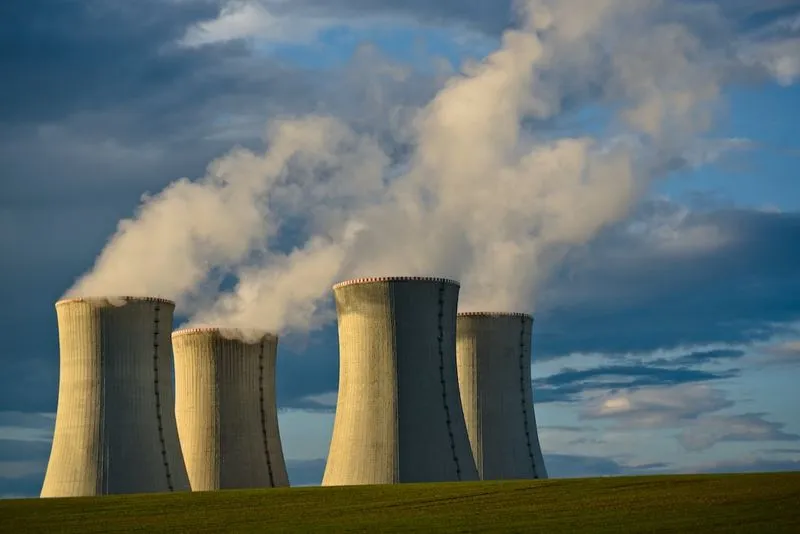
Nuclear Threats and the Study of Catastrophic AI Risks
OpenAI Forms New Team for Preparedness
OpenAI, a leading artificial intelligence research organization, has recently established a new team called Preparedness. Led by Aleksander Madry, the director of MIT's Center for Deployable Machine Learning, the team aims to assess, evaluate, and investigate the risks associated with AI models. Preparedness will focus on safeguarding against "catastrophic risks" ranging from AI's potential to deceive and manipulate humans to its malicious code-generating abilities. One rather surprising area of concern mentioned by OpenAI is the threat of "chemical, biological, radiological, and nuclear" risks related to AI models.
Are These Concerns Far-fetched?
OpenAI's CEO, Sam Altman, has been known to express his worries about the potential dangers of AI, even suggesting that it may lead to the extinction of humanity. However, the announcement that OpenAI is devoting resources to studying scenarios reminiscent of dystopian science fiction novels goes beyond what many had anticipated. While some may question the feasibility of these concerns, OpenAI is open to studying both "less obvious" and more grounded areas of AI risk.
Community Involvement and $25,000 Prize
To encourage active participation from the community, OpenAI is inviting ideas for risk studies related to AI. The company is offering a $25,000 prize and the opportunity to join the Preparedness team for the top ten submissions. Contestants are challenged to imagine themselves as malicious actors having unrestricted access to OpenAI's advanced models and propose potential catastrophes that are both unique and plausible.
Risk-Informed Development Policy
Alongside their research efforts, the Preparedness team will also develop a "risk-informed development policy." This policy will outline OpenAI's approach to evaluating and monitoring AI models, risk mitigation strategies, and the governance structure for oversight throughout the model development process. OpenAI believes that highly capable AI systems have the potential to benefit humanity but also pose increasingly severe risks. Therefore, it is crucial to establish the necessary understanding and infrastructure to ensure their safety.
Addressing Superintelligent AI
The unveiling of the Preparedness team coincides with a U.K. government summit on AI safety. It also follows OpenAI's announcement of another team dedicated to studying and controlling "superintelligent" AI. OpenAI's CEO, Sam Altman, along with Ilya Sutskever, the company's chief scientist and co-founder, believes that AI with intelligence surpassing that of humans may emerge within the next decade, requiring research into methods to limit and regulate its behavior.
Editorial: The Ethical Responsibility of AI Development
Balancing Benefits and Risks
The establishment of OpenAI's Preparedness team highlights the growing concern over the potential risks posed by AI systems. As AI continues to advance and enhance its capabilities, the need for rigorous evaluation, monitoring, and risk mitigation becomes paramount. OpenAI's emphasis on assessing both immediate and far-reaching threats should be commended, as it demonstrates a commitment to responsible and ethical development.
Considering the Unintended Consequences
The study of catastrophic AI risks, including the possibility of nuclear threats, prompts us to confront the ethical questions surrounding the development and deployment of advanced AI systems. While AI holds tremendous potential to benefit society, it also presents unprecedented challenges. As AI models become more sophisticated, so do the risks associated with their misuse or unintended consequences. OpenAI's proactive willingness to address and understand these risks is a crucial step in ensuring the safe and responsible use of AI technology.
Advice: Collaborative Efforts and Multi-Stakeholder Engagement
Actively Involving the Community
OpenAI's decision to invite ideas from the community for risk studies is commendable. A collaborative approach that harnesses the collective intelligence of researchers, policymakers, and industry experts can help identify and anticipate potential risks more effectively. By actively involving the community, OpenAI can gain diverse perspectives and foster a sense of shared responsibility in addressing AI risks.
Building International Cooperation
Given the global nature of AI development, addressing catastrophic AI risks requires international cooperation. Governments, research institutions, and private sector organizations should collaborate to develop common frameworks and guidelines that ensure the safe and ethical development of AI technology. International summits and conferences, like the one held by the U.K. government, serve as crucial platforms for fostering dialogue and consensus-building.
Ethics as a Foundation
As AI progresses, ethical considerations must be at the forefront. Governments should establish regulatory frameworks that provide clarity on the ethical standards expected from AI developers and users. Companies, too, should adopt internal policies and procedures that prioritize ethical conduct throughout the AI development lifecycle. Ultimately, a shared commitment to ethical practices will help foster public trust and confidence in the responsible use of AI.
In conclusion, OpenAI's formation of the Preparedness team to study catastrophic AI risks, including nuclear threats, reflects the ethical responsibility that comes with the advancement of AI technology. By actively engaging the community and promoting international cooperation, we can collectively ensure the safe and beneficial use of AI for the betterment of humanity.
延伸閱讀
- OpenAI 的創意寫作 AI 讓人想起高中文學社那個討人厭的孩子
- 微軟加速 AI 研發程式,直指 OpenAI 競爭對手
- 一年過去了,OpenAI 的聲音複製工具仍未問世!
- 加州新 AI 法案出爐,SB 1047 作者再推出改革措施!
- 《超級瑪利歐成為 AI 基準測試的新標準!你絕對想不到的理由》
- Google 推出 SpeciesNet:專為識別野生動物而設的人工智慧模型!
- 安瑟普提克獲得 35 億美元巨額資金 瞄準人工智慧未來!
- OpenAI 重磅推出 GPT-4.5:歷史上最大的語言模型來了!
- 探索 DeepSeek:你必須理解的 AI 聊天機器人應用全指南!
- OpenAI 計劃將 Sora 影片生成器整合至 ChatGPT,開啟創意新視界!